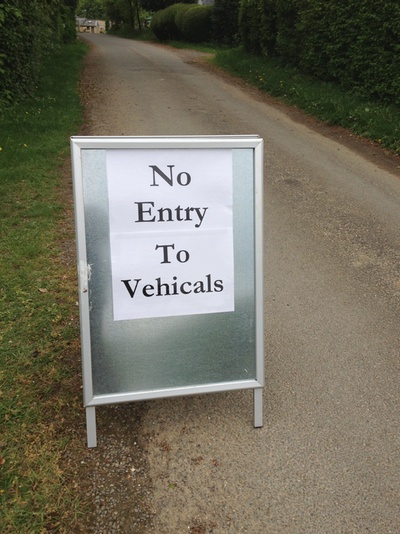Quote for the day:
You wouldn’t worry so much about what others think of you if you realized how seldom they do.
— Eleanor Roosevelt
Quote for the day:
You wouldn’t worry so much about what others think of you if you realized how seldom they do.
— Eleanor Roosevelt
The Great Gate, Gonville & Caius College, Cambridge.
You can probably just make out the helix on the floor which is part of a new memorial to Francis Crick.
 Here’s a quick and simple recommendation. About three years ago I decided I needed a new all-in-one remote control, since my (splendid and extravagant) old Marantz RC2000 mk II was struggling to keep up with the latest innovations in infrared.
Here’s a quick and simple recommendation. About three years ago I decided I needed a new all-in-one remote control, since my (splendid and extravagant) old Marantz RC2000 mk II was struggling to keep up with the latest innovations in infrared.
So, after some pondering, I looked at the Logitech Harmony series – which I’d first seen at a CES show long ago, before they were even part of Logitech. The basic idea is that you use a special website and utility to put in details of the hardware you’ve got – which models of TV, Amp, DVD, etc – and how they’re connected together. It asks questions like “When you want to turn up the volume on the TV, do you use the TV or the amplifier?” Then you plug your remote in to a USB port and it gets programmed with all the appropriate codes and configuration. I went for a middle-of-the-range one, the Harmony One, and started thinking of all the ways I’d be able to customise it to make it do what I wanted.
And… I didn’t need to. After I’d set it up with something pretty close to the default configuration, it just did what I wanted out of the box. And has done so ever since. I haven’t gone back and fiddled with it once, which, knowing my propensity for such activities, is quite a recommendation.
My friend Rose Goslinga has been working to create affordable insurance for African farmers. This is not only exceedingly good and valuable work, but I’ve just discovered this Poptech talk she gave about it a couple of years ago.
I think it’s quite brilliant, because, while I haven’t heard her give a talk before, I remember Rose as a quiet, humble lass who I wouldn’t have considered a likely natural public speaker. But I can think of few if any talks I’ve ever seen which convey their message so simply and effectively in under five minutes. If you don’t watch it because you’re interested in how technology can help the poor, watch it as a lesson in public speaking done right.
Recently, I’ve adopted the somewhat complicated habit of having several jobs at once. It’s not always the most productive way to work, but it keeps me on my toes, and life is never dull! And so, today, I started a new job, as a Research Associate in the Cambridge University’s Computer Lab.
Now, this is only one day a week, and it’s a fairly junior post, but it has significance for me, for several reasons. One is that it’s with an old friend, Frank Stajano, helping on what should be an interesting project. A second is that it’s nice to have at least a modest foothold back in academia, doing stuff that isn’t primarily profit-motivated. But thirdly, I’m enjoying a bit of nostalgia.
You see, I’ve been here before.
Just before I started my PhD, I also had an R.A. post in the Computer Lab. And many great people from that time are still around. So in some senses it feels familiar.
I have a shiny new Linux machine on my desk. Well, I had a Linux machine back then, too, but it was rather different. I had commandeered a spare PC and installed this newfangled operating system on its hard disk. I’d experimented before with booting Linux up from floppies, but to have a machine which I could, at least temporarily, dedicate to this skunkworks experiment was wonderful, and it had a decent CPU with enough RAM and disk space that I could run a graphical interface on it! I think I’m probably the first person in the lab to have used Linux with X Windows, which seems remarkable now, when it’s on the majority of desks in the department.
Other things have also changed, not least the building in which the lab is located. The phones on the desks are connected by ethernet cables, not by phone wiring, but of course, I’ll scarcely use it because I now have a phone in my pocket as well. Wow.
But the other thing that really makes me feel old is that the last time I started a similar job to the one I started today, in the same organisation, not one of us had ever heard of the World Wide Web, for the simple reason that it didn’t yet exist.
Gosh, I’m ancient…!
Economically, there are two kinds of people/households in this world:
It’s a fairly arbitrary line to draw, and I wouldn’t want to make any value judgments based on it. It’s tempting to call them ‘wealth-generators’ and ‘wealth-consumers’, for example, but that’s too simple. Most teachers fall into the second group, but without them, we’d have fewer people able to be in the first group.
Those in the first group are typically creating value by selling products or services that people want directly. Many of those in the second are doing the same thing, but we buy their products and services via a distributor known as ‘government’. That, to a large extent, is what taxes are.
But I just thought it was an interesting thought experiment, if nothing more. What’s your family budget deficit? How much are you dependent on government subsidy?
And if you don’t like the answer, comfort yourself with the thought that, thankfully, not everything revolves around taxation! How does your balance sheet look in other areas?
That’s much more important.
It’s somewhat ironic that, just as we get truly widespread SVG support in browsers – people are starting to create amazing graphics using CSS alone.
For those unfamiliar with the jargon, CSS stands for Cascading Stylesheets – they’re the things that tell your browser the background colour of a page, how widely spaced the lines in this paragraph are, and so forth. SVG is Scalable Vector Graphics, a system for telling the browser how to draw pictures, using components like lines, circles, etc. (as opposed to just embedding a JPEG-type image). SVG is particularly important as displays become bigger, smaller, and higher resolution, because the browser can draw things at the right resolution for even the newest retina MacBook Pro. It’s been around for a long time but has been held back by, of course, poor support in Internet Explorer. However, it’s now more widely supported than Flash, so if you can’t see this little doodle, you really need to find yourself another browser:
I scribbled this quickly in Inkscape, but here’s the beta version of a nice in-browser SVG editor.
But when it comes to artistic creativity, constraints are often a good thing, which is why some of the best photos are taken with prime lenses rather than zooms. And as CSS itself has become ever-more capable, it has allowed people like John Galatini to create this Tube map entirely from HTML and CSS.
You can tell it’s not an image, because you can copy and paste the text.
Just as amazing is Burak Can’s CSS-only MacBook Air, where the screen background is the only image used.
On the other hand, people have been doing some cool but much simpler stuff with CSS for many years. I like Román Cortés’s Homer Simpson from 5 years ago; click the Animate buttons to see how it’s made.

Well, that’s fine, because I haven’t got one of those…
© Copyright Quentin Stafford-Fraser
Recent Comments